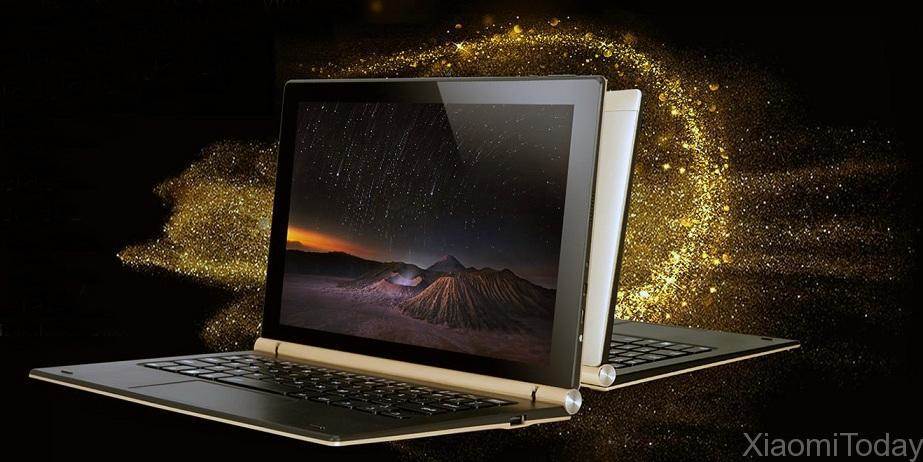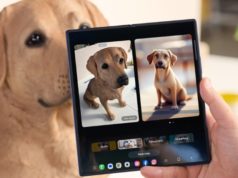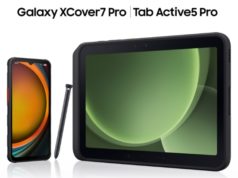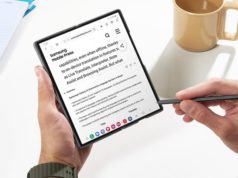Our passion of reviewing dual OS tablets is limitless. We have already got our hands on devices like the Cube i10, Pipo W6S, Teclast Tbook 11 or I101. Moreover, it has been claimed the Xiaomi Mi Pad 2 (64 GB) will come with a similar feature as well. This means Chinese manufacturers are passionate for dual boot tablets as well. That’s why we even have had to come in with an interesting comparison article referring to the best 5 Chinese dual boot tablets. As you guess this list is going to be enlarged thanks to a new member of family dubbed as the Onda OBook 20 Plus.
There are many Windows 10 tablets-transformers packed with a decent specs list. The same can be said for Android tablets. But seems these two operating systems don’t satisfy customers separately. So the decision to make dual boot tablets seems quite justified. Of course, there are some technical issues related to the compatibility, but I guess all the devices we have reviewed earlier and the Onda OBook 20 Plus too have solved those problems. Otherwise, these products wouldn’t be as popular as now they are.
Onda OBook 20 Plus Design Doesn’t Yield Top Brands’ Products
I decided to start the Onda OBook 20 Plus design review from its back. (Later you will have a hunch why.) This tablet doesn’t look similar to other handsets. I mean if looking for other tablets and comparing our hero with them you can’t find a tablet with the same design elements. The only exception can be the Asus Tablet EEE Pad Transformer Infinity. When putting these two tablets side by side we can see both has the same disjunctive line on the top of the back cover. But the overall back cover can be compared with the Lenovo IdeaTab Lynx. Both manufacturers decided to start cutting of the edges much earlier than other brands. As a result, the tablets look slimmer. However, there are nothing on the back to be mentioned but a special redesigned cover to boot WiFi signal strength. Though housing is not the most popular WiFi signal problem reason, the manufacturer has decided to spend some efforts on it and provide better wireless connectivity.

Asus Tablet EEE Pad Transformer Infinity Back
The Onda OBook 20 Plus’ front side is not similar to any tablet as well. If looking more attentively we can see its corners are not as rounded as many products from the similar category. For example, the XiaoMi Mi Pad 2 comes with considerable rounded corners. In this sense, the Onda OBook 20 Plus looks like the Lenovo Miix 10. Moreover, the distance between the product’s edge the screen is not that much. Thus when holding the tablet by two hands you can access more area.
There is a ‘secret’ I want you to know – if the front camera is located on the longer side of the tablet than it’s designed for laptop mode usage more. I mean almost everything is thought to be comfortable for horizontal usage, but when the camera is on the shorter side, it can serve as a phablet and it’s designed for one hand usage. As you can guess 10+ -inch tablets are more comfortable to use as a laptop, and 7- or 8-inch tablets are designed for other purposes. The Onda OBook 20 Plus belongs to the first group.

Anyway, the front camera is located on above the screen, but it’s moved to right. Honestly, I don’t know why. If you are familiar with such a practice, you can kindly share it with us. But there are no home button on the tablet. So we can assume the manufacturer has decided to come with a buttonless and minimalistic design. The volume rocker alongside with the unlock button are placed on the top. The DC jack, micro HDMI and micro USB slots, 3.5mm audio jack are on the right side. A few connectors and a TF card lost are placed on the bottom of the Onda OBook 20 Plus. But the TF card slot can’t be used when the keyboard is connected.

The Onda OBook 20 Plus is a transformer tablet meaning it can be serve as a common tablet as well as a fully functional laptop when the keyboard is connected. The latter can be implemented by one move like all other transformers.

The Onda OBook 20 Plus is available in champagne gold, and the metal body gives an additional charm to the tablet. It comes at dimensions of 25.30 x 16.80 x 0.80 cm, thus it’s very slim and should weigh light as well. It does – only 580 grams. This simply means we are dealing with a portable device we can take with us everywhere. Generally, the Onda OBook 20 Plus looks very stylish. Its keyboard is designed well too. So when it’s connected to the tablet the Onda OBook 20 Plus looks like a business class ultrabook.
Onda OBook 20 Plus Display At Odd Resolution
This device belongs to the category of 10-inch tablets. But what’s strange it comes at a resolution of 1920 x 1200 pixels. Thus we are dealing with a WUXGA 10.1-inch IPS touchscreen. I am offering to dig deeper to find out why WUXGA is a strange decision.

The WUXGA is the last option the in the graphics display resolution list before the Quad Extended Graphics Array starts. Shortly, Extended Graphics Array ends with WUXGA (1920×1200) and yields its position to QWXGA (2048×1152). The WUXGA stands for Widescreen Ultra Extended Graphics Array, thus it comes with a 16:10 screen aspect ratio. The latter is used to view high-definition television (HDTV) content. But HDTV is mainly displayed on screens with 16:9 aspect ratio. Earlier the WUXGA was used for many 17-inch display laptops, but now it’s not used much. As for mobile devices, we can find such a resolution display on the Huawei Honor X2 Gem. As for the tablets, we have seen it on the same Onda V80 Plus, CHUWI Hi8 Pro, and Pipo W1S. So I tend to think these displays are produced only for Chinese tablets. I don’t like this idea at all. Anyway, thanks to IPS technology you get 178 degrees of viewing angle, and I guess it’s a real solvation for those who have suffered a lot of LCD screens.
Onda OBook 20 Plus Performs Well
This tablet is powered with an Intel Cherry Trail Z8300 quad-core processor clocked at 1.44GHz that can be boosted up to 1.84GHz. This CPU comes at a 64bit architecture and has been launched last year. If you follow us, you should be familiar with this processor, as it appears on the Onda V80 Plus, Teclast X10 Plus, DEEQ R116C, Teclast X98 Plus II tablets and GOLE 1 Mini PC and Pipo X1S PC stick. Thus this is a quite popular processor among Chinese tablets and other useful devices. Thanks to an Intel Turbo Boost Technology it delivers dynamic extra power when you need it.
But the processor is not the only surprising hardware under the hood. The Onda OBook 20 Plus is also equipped with an Intel HD Graphic Gen8 GPU optimized to use less power. There are also a 4GB LPDDR3 RAM for advanced multitasking and 64GB eMMC ROM. The latter has an extension opportunity up to 256 GB via TF card slot.
The tablet sports a 2MP front camera for video chat, and though it’s enough for quality Skype calls, it won’t provide good selfies.

Thanks to some innovative technologies we get great options for video streaming and playing. I mean the Onda OBook 20 Plus supports Bluetooth 4.0, 4K video output, Wireless Display aka WiDi that allows users to stream media wirelessly from the tablet to a compatible HDTV. I guess you know Intel has decided to discontinue this feature starting October 15 as a similar standard called the Miracast is natively supported in Windows 8.1 and 10.
And finally the tablet is packed with a 6000mAh battery that should be enough to provide 3-5 hours of normal usage.

As for software, the Onda OBook 20 Plus comes with Android 5.1 Lollipop and Microsoft Windows 10 Home pre-installed. Thus you can download compatible apps and widgets and use your tablet according to your needs.
Onda OBook 20 Plus Against the World
When searching for the best Windows 10 tablets of 2016 we can find kindred lists, as they include almost the same top brands and their tablets. Undoubtedly, the Microsoft Surface (Pro 4) is thought to be the best tablet from this category. But we know there are many other names worthy to be mentioned as the best Windows 10 tablets as well. For example, there are the Dell Venue 8 Pro, HP Envy 8 Note, Lenovo Thinkpad X1 Tablet, HP Spectre x2, Samsung Galaxy TabPro S, Toshiba WT310, Chuwi HiBook, Asus Transformer Book T100 Chi, Asus ZenPad 10 ZD300C and many more. As you see I have mentioned almost all the top brand tablets coming with Windows 10 and launched in 2016. But almost all of them are overpriced. The only exception is the Chuwi that costs a bit lower. So the main advantage of the Onda OBook 20 Plus in comparison to the all those handsets is the pricing. But this doesn’t mean it yields in terms of features. Absolutely no! The Onda OBook 20 Plus sports quite an acceptable specs list and you should have been convinced in it when got acquainted with them above. Neither design nor features and price are not better at other devices rather than at the Onda OBook 20 Plus.
As for Android powered tablets list, it’s thought to be the Google Pixel C, HTC Nexus 9, Samsung Galaxy Tab S2 8.0, NVIDIA Shield Tablet K1, Sony Xperia Z4 Tablet, DELL VENUE 10 7000 and many more are the best from the category. Fortunately, these Android tablets are priced well and can be affordable for large masses. But as you know Android yields Windows in terms of productive app usage like PhotoShop, AutoCAD, Microsoft Office and many more. Even if there are understudy apps available on Play Store, Google’s OS is designed mainly for mobile purposes and those apps are the lightened version of the original programs. However, if you want to boot Android on your tablet to run many games, apps and widgets available from Google’s app market, the Onda OBook 20 Plus will help you with this goal as well.
Finally, as I said at the beginning of the article, we have talked about the best dual boot tablets for many times. Besides Chinese brands there are no other ones coming with such a functionality. Probably,…






